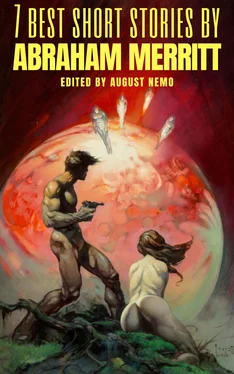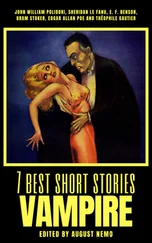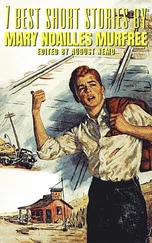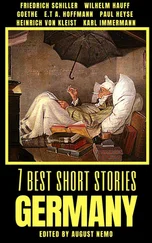But deep down in earth, within the caverns, were music and song and mirth and beauty. Gossamer nymphs circled under the little moons. Pan piped. There was revelry of antique harvesters under the small suns. Grapes grew and ripened, were pressed, and red and purple wine was drunk by Bacchantes who fell at last asleep in the arms of fauns and satyrs. Oreads danced under the pale moon-bows and sometimes Centaurs wheeled and trod archaic measures beneath them to the drums of their hoofs upon the mossy floor. The old Earth lived again.
Narodny listened to drunken Alexander raving to Thais among the splendors of conquered Persepolis; and he heard the crackling of the flames that at the whim of the courtesan destroyed it. He watched the siege of Troy and counted with Homer the Achaean ships drawn up on the strand before Troy's walls; or saw with Herodotus the tribes that marched behind Xerxes—the Caspians in their cloaks of skin with their bows of cane; the Ethiopians in the skins of leopards with spears of antelope horns; the Libyans in their dress of leather with javelins made hard by fire; the Thracians with the heads of foxes upon their heads; the Moschians who wore helmets made of wood and the Cabalians who wore the skulls of men. For him the Eleusinian and the Osirian mysteries were re-enacted, and he watched the women of Thrace tear to fragments Orpheus, the first great musician. At his will, he could see the rise and fall of the Empire of the Aztecs, the Empire of the Incas; or beloved Caesar slain in Rome's Senate; or the archers at Agincourt; or the Americans in Belleau Wood. Whatever man had written—whether poets, historians, philosophers or scientists—his strangely shaped mechanisms could bring before him, changing the words into phantoms real as though living.
He was the last and greatest of the poets—but also he was the last and greatest of the musicians. He could bring back the songs of ancient Egypt, or the chants of more ancient Ur. The songs that came from Moussorgsky's soul of Mother-earth, the harmonies of Beethoven's deaf ear, or the chants and rhapsodies from the heart of Chopin. He could do more than restore the music of the past. He was master of sound. To him, the music of the spheres was real. He could take the rays of the stars and planets and weave them into symphonies. Or convert the sun's rays into golden tones no earthly orchestras had ever expressed. And the silver music of the moon —the sweet music of the moon of spring, the full-throated music of the harvest moon, the brittle crystalling music of the winter moon with its arpeggios of meteors—he could weave into strains such as no human ears had ever heard.
So Narodny, the last and greatest of poets, the last and greatest of musicians, the last and greatest of artists—and in his inhuman way, the greatest of scientists—lived with the ten of his choosing in his caverns. And, with them, he consigned the surface of earth and all who dwelt upon it to a negative Hell—Unless something happening there might imperil his Paradise!
Aware of the possibility of that danger, among his mechanisms were those which brought to eyes and ears news of what was happening on earth's surface. Now and then, they amused themselves with these.
It so happened that on that night when the Warper of Space had dealt his blow at the space ships and had flung a part of the great Crater of Copernicus into another dimension, Narodny had been weaving the rays of Moon, Jupiter and Saturn into Beethoven's Moonlight Sonata. The moon was a four-day crescent. Jupiter was at one cusp, and Saturn hung like a pendant below the bow. Shortly Orion would stride across the Heavens and bright Regulus and red Aldebaran, the Eye of the Bull, would furnish him with other chords of starlight remoulded into sound.
Suddenly the woven rhythms were ripped—hideously. A devastating indescribable dissonance invaded the cavern. Beneath it, the nymphs who had been dancing languorously to the strains quivered like mist wraiths in a sudden blast and were gone: the little moons flared, then ceased to glow. The tonal instruments were dead. And Narodny was felled as though by a blow.
After a time the little moons began to glow again, but dimly; and from the tonal mechanisms came broken, crippled music. Narodny stirred and sat up, his lean, high-cheeked face more Satanic than ever. Every nerve was numb; then as they revived, agony crept along them. He sat, fighting the agony, until he could summon help. He was answered by one of the Chinese, and soon Narodny was himself again.
He said: "It was a spatial disturbance, Lao. And it was like nothing I have ever known. It came in upon the rays, of that I am sure. Let us look out upon the moon."
They passed to another cavern and stood before an immense television screen. They adjusted it, and upon it appeared the moon, rapidly growing larger as though it were hurtling toward them. Then upon the screen appeared a space-ship speeding earthward. They focused upon it, and opened it to their vision; searching it until they came to the control room where were Bartholomew, James Tarvish and Martin, their gaze upon Earth rapidly and more rapidly expanding in the heavens. Narodny and the Chinese watched them, reading their lips. Tarvish said: "Where can we land, Martin? The robots will be watching for us everywhere. They will see to it that we are destroyed before we can give our message and our warning to the world. They control the governments—or at least control them sufficiently to seize us upon landing. And if we should escape and gather men around us, then it means civil war and that in turn means fatal delay in the building of the space fleet—even if we should win."
Martin said: "We must land safely—escape the robots—find some to control or destroy them. God, Tarvish—you saw what that devil they call the Wrongness of Space can do. He threw the side of the crater out of our dimension as a boy would throw a stone into a pond!"
Bartholomew said: "He could take Earth and break it up piecemeal!"
Narodny and Lao looked at each other. Narodny said: "That is enough. We know." The Chinese nodded. Narodny said: "I estimated that they would reach Earth in four hours." Again Lao nodded. Narodny said: "We will talk to them, Lao; although I had thought we were done with mankind. I do not like this which they call so quaintly the Wrongness of Space—nor the stone he threw into my music."
They brought a smaller screen into position before the larger one. They oriented it to the speeding space-ship and stepped in front of it. The small screen shimmered with whirling vortices of pallid blue luminescence; the vortices drew together and became one vast cone that reached on and on to the greater screen as though not feet but thousands of miles separated them. And as the tip of the cone touched the control room of the space-ship mirrored in the screen, Tarvish, upon the actual ship, gripped Martin's arm.
"Look there!"
There was an eddying in the air, like that over roads on a hot summer day. The eddying became a shimmering curtain of pallid blue luminescence— steadied until it was an oval doorway opening into vast distances. And then abruptly, within that doorway, stood two men—one tall and lean and saturnine with the sensitive face of a dreamer and the other a Chinese, his head a great yellow dome and on his face the calm of Buddha—and it was strange indeed to see in the cavern of earth these same two men standing before the blue-coned screen and upon the greater one their images within the imaged room on which the tip of the cone rested.
Narodny spoke, and in his voice there was a human indifference and sureness that chilled them, yet gave them courage. He said: "We mean you no harm. You cannot harm us. We have long been withdrawn from men. What happens on the surface of Earth means nothing to us. What may happen beneath the surface means much. Whatever it is you have named the Wrongness of Space has already annoyed me. I perceive that he can do more than annoy. I gather that the robots in one way or another are on his side. You are against him. Therefore, our first step must be to help you against the robots. Place me in possession of all facts. Be brief, for we cannot maintain our position here for more than half an hour without discomfort."
Читать дальше

![Коллектив авторов - Best Short Stories [С англо-русским словарем]](/books/26635/kollektiv-avtorov-best-short-stories-s-anglo-thumb.webp)










